Albert Booth was struggling to cope with his grief when he lost six close members of his family.
It was often difficult to control his anger and at times he felt he no longer wanted to live.
But thankfully he got the help he needed from an Aberdeenshire wellbeing charity where staff helped him turn his life around.
“When I first started, I wouldn’t come through the door because I was scared of people,” he says. “I’d lost all my confidence.
“They were very helpful; I was really in a bad way and I’ve got better out of it.”
Albert, 55, started going to the Peer Group service at Networks of Wellbeing in 2014 and says he now feels “great”.
And through realising just how important the Huntly service is, he’s now volunteering with the charity and its dementia work in care homes.
‘He has a warm personality’
“People love the cheeky chappie in Albert because he has a very warm personality,” charity manager Fiona Alderson says.
“There can be a tendency when people go into care homes that they’re written off as having nothing to contribute and Albert just helps them feel special again.”
Fiona, who started working with the charity in 2013, knows personally just how difficult it can be to go through tough times in life.
In a previous job, she faced a rough environment and eventually had to leave for the sake of her mental health.
But now she’s in a rewarding role at the Huntly charity celebrating its 30th anniversary this year.
‘I didn’t want to get out of bed after leaving the RAF with post-traumatic stress’
After starting out as a postnatal depression group, it has grown into an organisation offering a range of wellbeing services.
The charity is helping residents with Chilling Women relaxation groups, counselling, mindfulness sessions, a Menopause Cafe and veterans breakfasts.
Morag Lightning, 51, has benefitted from taking yoga classes and going out on veteran’s activity days.
She was medically discharged with post-traumatic stress disorder after working for the RAF, serving in both Iraq and Afghanistan, for 21 years.
“I was quite badly messed up mentally when I left,” the former policewoman explains.
“I went to counselling for a while but, to be honest, it was making me worse because I had to relive all the things that messed me up in the first place.
“I’ve got a young daughter and I felt it wasn’t fair for her because most of the time I was either recovering from my weekly sessions or worrying about going to them.
“So I stopped and started trying to deal with it myself.”
Morag, of Turriff, started going to mindfulness classes and soon learned that there were lots of coping strategies she could use.
It’s also been helpful having military camaraderie with other veterans through attending breakfasts or heading out on activity days such as wildlife trips.
“When I was first medically discharged I didn’t even want to get out of my bed,” she says. “I didn’t want to speak to anybody or face the world.
“So having that confidence back to be able to walk into an event with other people there was a huge thing for me. It’s been really life-changing.”
Networks of Wellbeing now has a new home
The charity recently moved into a new permanent home in a building known as “the old janitor’s house” on the grounds of The Gordons Schools.
It was refurbished and now provides an activity room, offices for the small team of staff and a space for the counselling service.
The services are all grant funded and most of them are free for the community.
This means people on low incomes don’t have to choose between heating their homes, eating, or something that helps their mental health.
“It was a very long journey and now we’re here,” Fiona says. “I hope that everyone finds it a warm and welcoming space; we wanted it to be somewhere people can come to talk.
“And it feels like a nice place to come to work.”
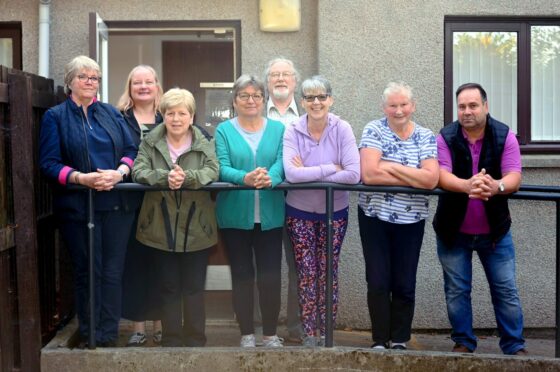
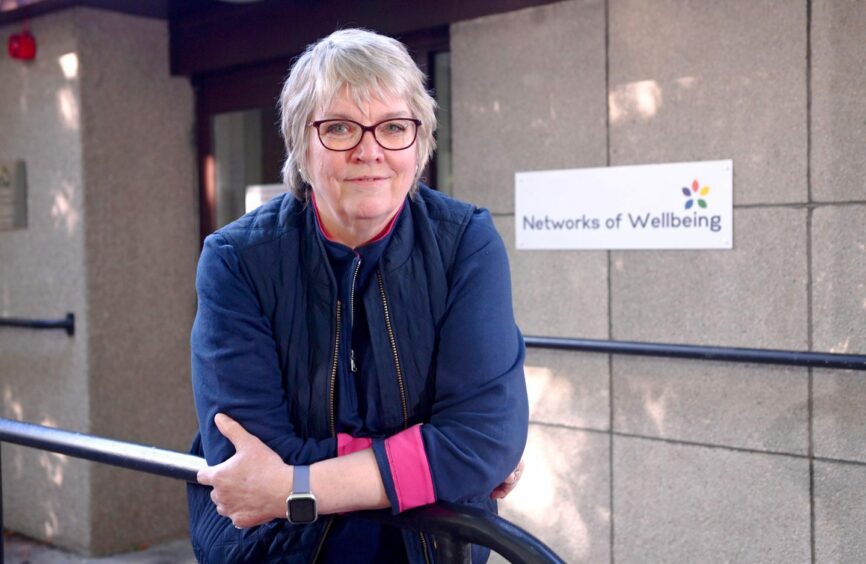
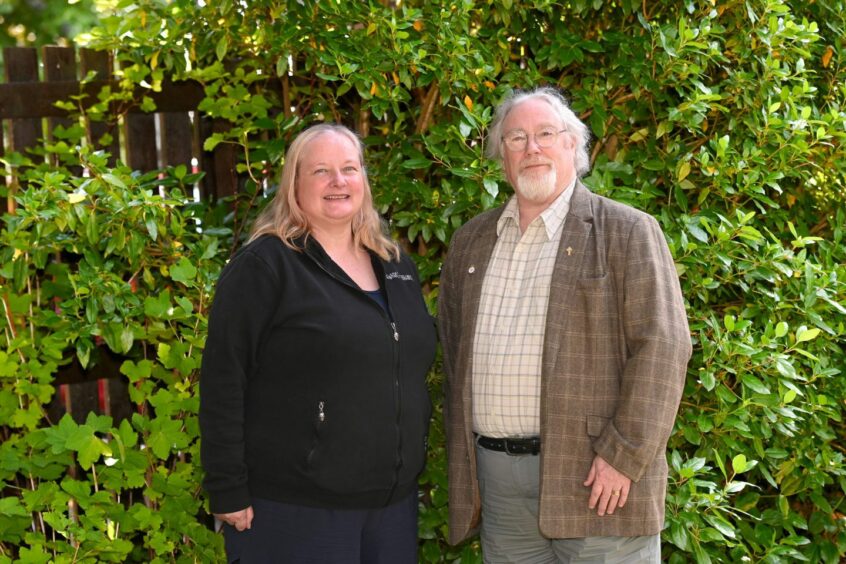
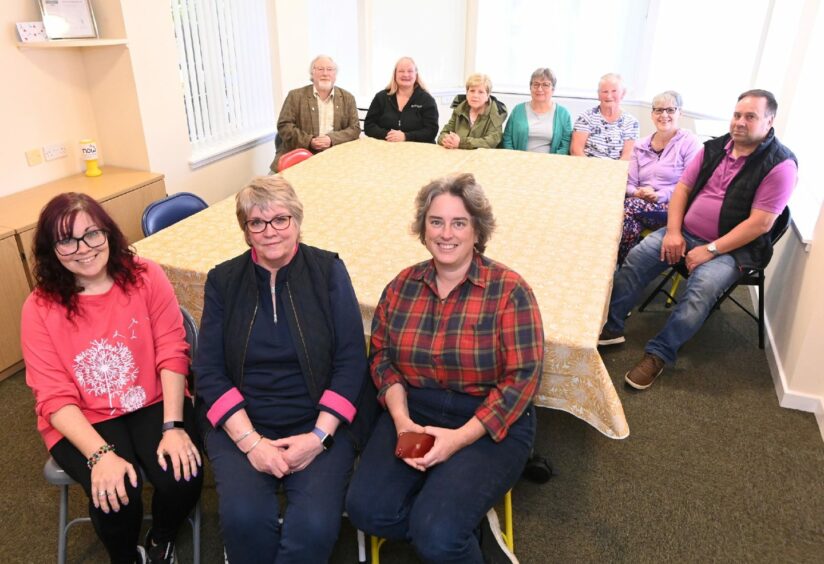
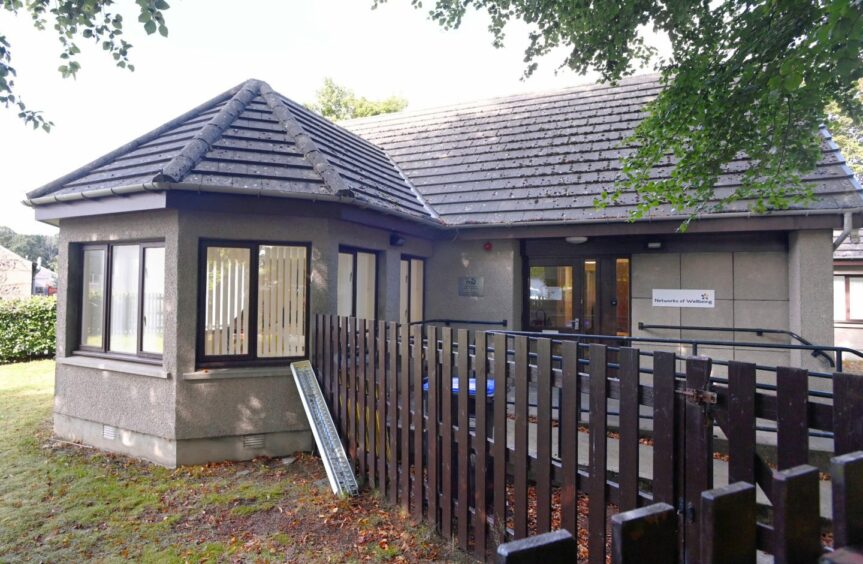
Conversation